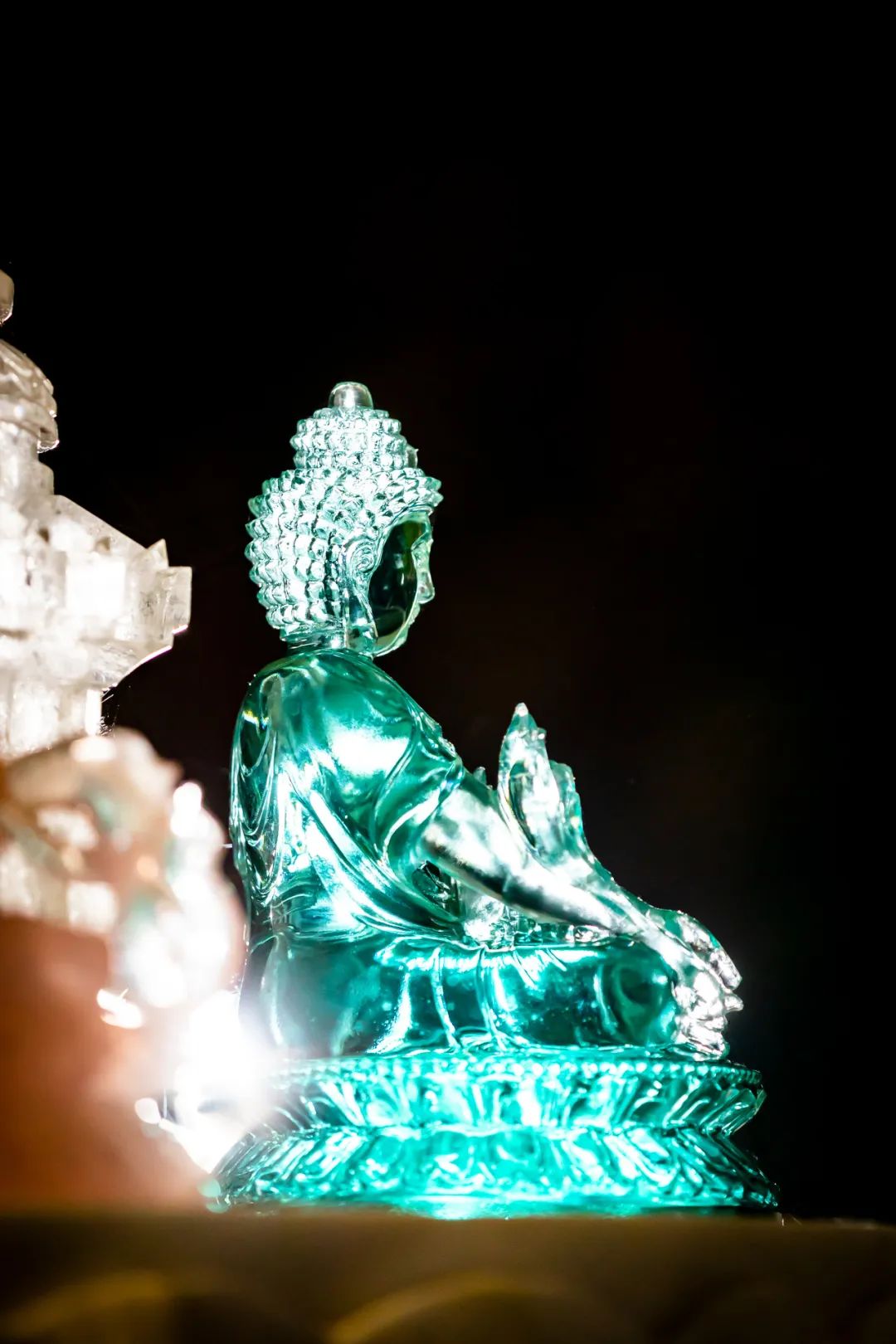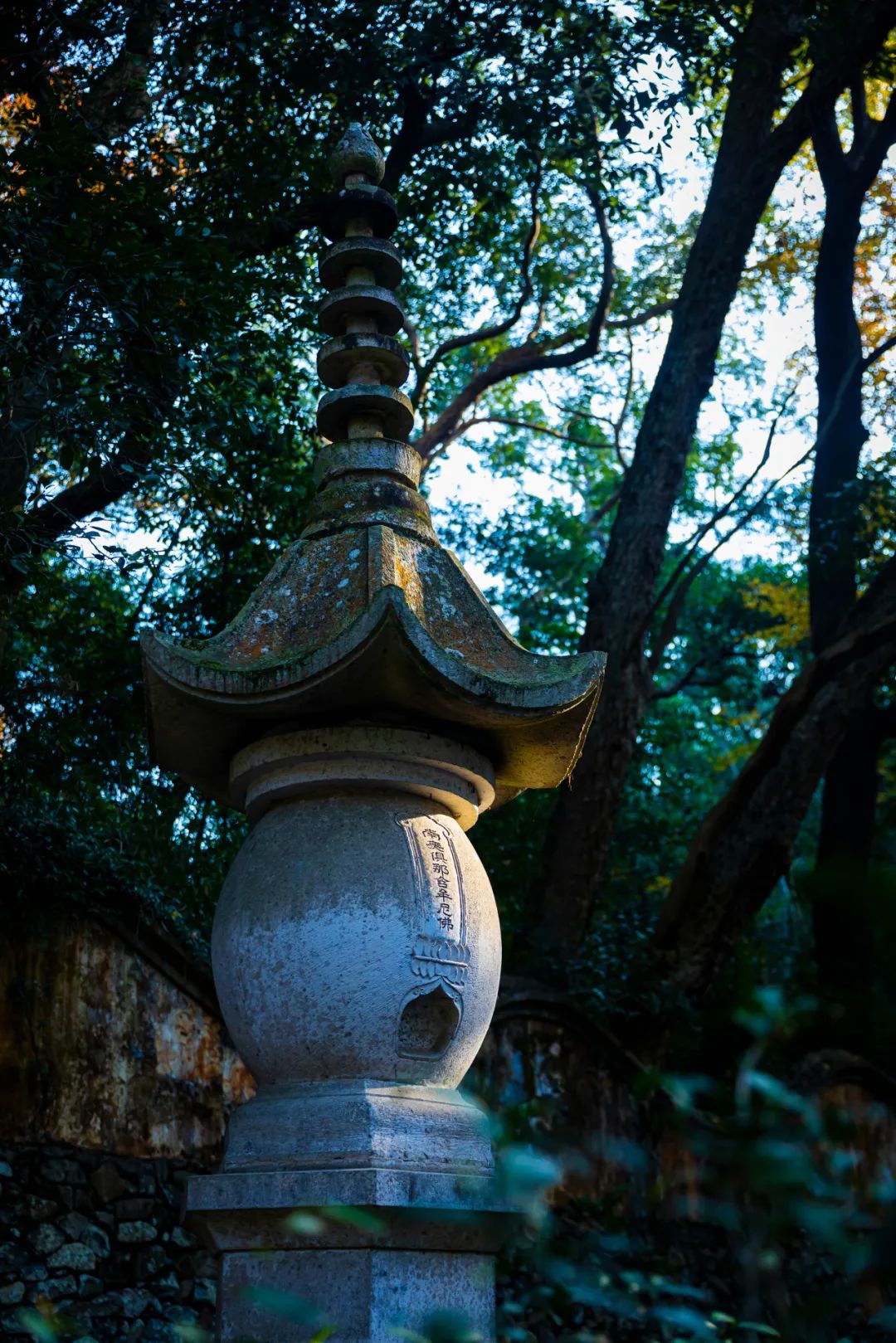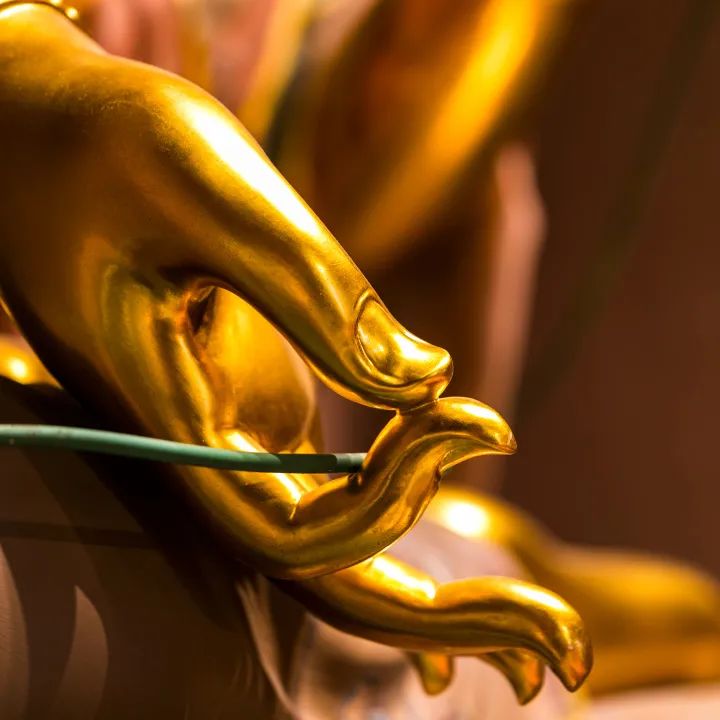为什么守“八关斋戒”不可歌舞倡伎?
Why does the "Eight Precept Fast" prohibit singing,
dancing, and entertainment?


Namo Buddhaya
为什么守
“八关斋戒”
不可歌舞倡伎?
Why does the "Eight Precept Fast" prohibit singing, dancing, and entertainment?
英文翻译:智航
英文朗诵:贤迦

Please click to play audio

////////
为什么守“八关斋戒”不可歌舞倡伎?
Why does the "Eight Precept Fast" prohibit singing,
dancing, and entertainment?

生命是多姿多彩的,作为学佛来说,为什么守“八关斋戒”不可歌舞倡伎?因为在特定的时间、特定的空间,收敛身心,四肢盘起来,身体静下来,给心灵一个空间。动如脱兔,静如深潭,像一池静潭一样,碧可见底,一纹不起,这是生命的境界。外面唱歌跳舞那是很简单的,表象上的东西,从生命内在境界来说的话,这是一个学佛者,一个成熟的生命应当追求的,这个也是东西方一切艺术的根源。很多人练字、练歌喉,为什么成不了大家?内在精神层面他没有积淀,没有深入,肤浅没有分量,他没有一个足以震撼别人的力量。所以,东方在精神修养上是独到的,中国的艺术表面上看很简单,却有一种永恒的力量在里面。
Life is rich and colorful, but as Buddhist practitioners, why does the "Eight Precept Fast" prohibit singing, dancing, and entertainment? Because within specific times and spaces, we need to gather in body and mind, fold our limbs in meditation, quiet our bodies, and create a space for our spirits. Active like a darting rabbit, yet still like a deep pond—like a clear, undisturbed pool where you can see to the bottom without a single ripple—this is the state of life we seek. External activities like singing and dancing are simple, superficial things. From the perspective of inner spiritual cultivation, this stillness is what a Buddhist practitioner, a mature being, should pursue. This is also the root of all art, both Eastern and Western. Why do many people who practice calligraphy or train their singing voices never become masters? They lack accumulation and depth at the spiritual level—their superficiality carries no weight, and they lack the power to truly move others. Thus, Eastern spiritual cultivation has its unique approach. Chinese art may appear simple on the surface, yet it contains an eternal power within.

像我们出家人也不要唱歌,也没有跳舞。我出家十几年,没有花时间去练过字啊,画画啊,唱歌啊,这些都没有,一心一意放在佛法上,我觉得当内在的感悟提升的时候,外在这些东西都会随之提高。毛笔字我将近一二十年不写了,现在有时候给别人写个书的题目,写副对联,提起笔来就可以写,而且每年都在进步。今年虽然没有练,但是今年写的比去年好,随着对佛法修习的深入,反而越来越提高。
在古代有个人嗓子特别难听,不要说唱歌了,他念经别人都讨厌,在大殿里给他规定不要发出声音,你一发出声音,我们法器也敲乱了,大家都不会唱了,你看破坏力有这么大。他自己就很惭愧,就跪在佛面前忏悔,别人都睡觉了,他跪到菩萨面前忏悔业障,忏悔了九年。有一天晚上,他在忏悔的时候,忽然看到观音菩萨向他放一道光,他就晕过去了。第二天早上醒过来的时候,喉咙特别痛,他就跑出去吐,吐出血来,这些血吐出来,从此之后他的嗓音不单单好听,而且没有任何人能够模仿。

为什么?他的声带变成了四个,同时唱四个声部,厉害不厉害!什么叫四个声部?就好像四个人用四个不同的音域在唱歌。第一天念《地藏经》,课间的时候放的那个同声的高音,是世界著名的五个同声的。他一个人的嗓音就有四个声带,这个到现在,中国民间还有这样的奇象,但是没有四个声带,有两个声带的,蒙古的民间艺人可以同时用两个声部来唱歌。如果你没在电视里,录音里听过,你无法想象一个人唱歌同时有两个声部,你怎么想象。这就可以知道那个师父,他在观音菩萨面前忏悔了之后,改变了他喉轮的功德,有四个声部,这是多么的奇妙,所以学佛就有这个好处呢!
纵使在世间上,我以前没有努力,有所遗憾,但是通过学佛也可以弥补。以前虽然没有学过这些,但是我们佛教里说一通百通,至少你学佛用功了,都会增长功德。所以,学佛的人相貌会越来越好,声音会越来越好,脑筋也会越来越好,心态也会越来越好,福报也越来越好、越来越大,家庭也越来越圆满幸福。社会上学佛的人多了,社会也越来越进步。

学佛重点还是开智慧,我们供养佛菩萨,不是我们自己沉湎于喜乐。现在学佛要改变一种氛围,这是一种方便。有的枯坐几天、几个月,但是内心的境界那是非常壮观的,进入到内心的精神的图画上面去了,这是我们学佛最究竟的要达到的目的,不是说表面上唱,要达到内心深处的那种美。
The essence of Buddhist practice still lies in awakening wisdom. We make offerings to Buddhas and Bodhisattvas not for indulging personal pleasure and joy. Now Buddhist practice needs to transform its atmosphere—this is an expedient means. Some may sit in meditation for days or even months, yet the inner realm they attain is extraordinarily magnificent, entering the spiritual landscape of the mind. This is the ultimate goal we aim to achieve in Buddhist practice—not to perform on the surface, but to reach that profound beauty deep within the heart.
----三参法师

WAITING FOR YOU.
频繁刷手机,我们的心灵很容易被碎片化,
不要沉溺其中,学会自我节制,
通过学习佛法来有效滋养并净化我们的心灵,
一起回归心灵,保持身心灵的健康。

